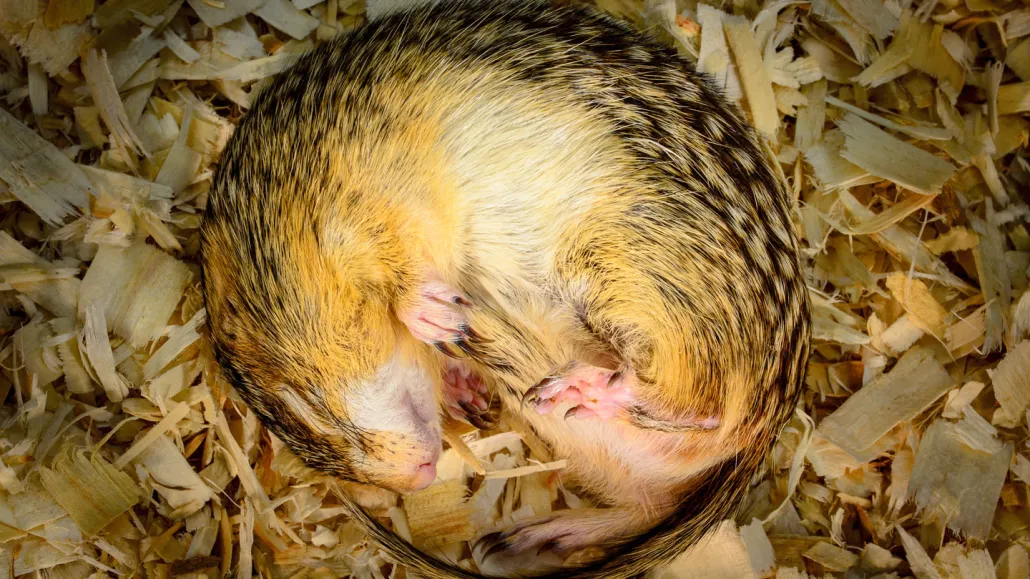
During hibernation, gut microbes of thirteen-lined ground squirrels (one shown) help the critters hold on to muscle by turning excess nitrogen into muscle’s building blocks.
Robert Streiffer

During hibernation, gut microbes of thirteen-lined ground squirrels (one shown) help the critters hold on to muscle by turning excess nitrogen into muscle’s building blocks.
Robert Streiffer